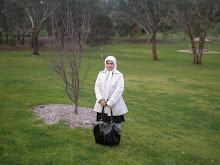Facilities for research Students
desk and PC
City: yes
Sheffield: yes
UCL: no
Queensland: yes
free printing
City: yes (no limit)
Sheffield: yes (up to a reasonable limit)
UCL: yes (260 pages a year)
Queensland: yes (1500 pages per semester)
free photocopy
City: yes (no limit)
Sheffield: no
UCL: no
Queensland: yes (1000 pages per semester)
direct telephone line
City: yes
Sheffield: yes
UCL: no
Queensland: yes
possibility to make free call
City: yes (no limit to all UK land lines)
Sheffield: no (you have to pay)
UCL: not at all
Queensland: yes (just in city without zero)
web or store space on the network
City: yes (at least 6 GB)
Sheffield: yes (?)
UCL: yes (100 MB)
Queensland: yes (more than 2 GB)
possibility to have your own webpage
City: yes
Sheffield: yes
UCL: n/a
Queensland: yes
you can see that different departmetns are offering different servces to their studets. these services are affected by many factor including the faculty that the department is a part of and etc.

